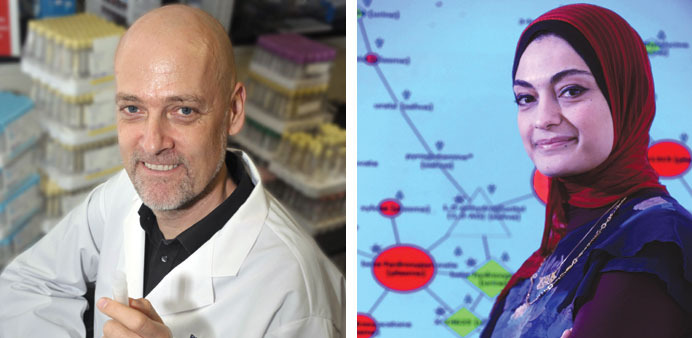Researchers at Weill Cornell Medical College in Qatar (WCMC-Q) have made new discoveries about the effects of type-2 diabetes on the human metabolism and developed a holistic understanding of biochemical changes that are associated with the disease.
The researchers cross-referenced observations of blood, urine and saliva samples from diabetes patients with those of healthy individuals, allowing them to characterise episodes of abnormal blood sugar levels across a wide range of different time scales, varying from 6-12 hours up to 2-3 months.
Previous studies have examined the three different sample types separately but the WCMC-Q team found that they could learn more about diabetes by interpreting them together to give what they call a “systems view” of the disease.
The research is based on the analysis of metabolites, which are substances produced by biochemical processes in the body and that can be found in biofluids such as blood, urine and saliva.
By extending the scope of the study to multiple body fluids, the researchers at WCMC-Q were able to identify many new diabetes-associated metabolites, enhancing the body of knowledge that exists about the disease.
In addition, the WCMC-Q scientists used the research data to create a comprehensive “map” of the complex network of metabolic reactions underlying type-2 diabetes.
This will serve as a reference tool for researchers as they try to develop new biomarkers for early detection of diabetes and more effective therapies to treat the disease. Dr. Karsten Suhre, professor of Physiology and Biophysics at WCMC-Q, led the research.
He said: “The metabolites in each type of sample tell us different stories about biological processes happening in various parts of the body and over different time scales. By analysing the three different sample types together we were able to improve our understanding of the interactions between different organs and tissues in the development and progression of diabetes.”
“This means we are getting a comprehensive and interactive view of the way diabetes impacts the health state of our body. You could say it is as if we are looking at the activity of an entire house, rather than just looking at what is happening in each room separately.”
The study, which was carried out by WCMC-Q scientists in collaboration with physicians at Hamad Medical Corporation (HMC), analysed samples from 188 diabetes patients and 181 control patients of Arabic and Asian descent.
Dr. Noha Abdel Rahman Yousri, postdoctoral associate in Physiology and Biophysics at WCMC-Q who led the analysis of the project said: “Mapping the metabolites specific to type-2 diabetes onto the complex network of biochemical reactions, while considering different timescales of glycemic control, enables us to better understand the effect of the disease on the different organs.”

Dr Karsten Suhre and Dr Noha Abdel Rahman Yousri
